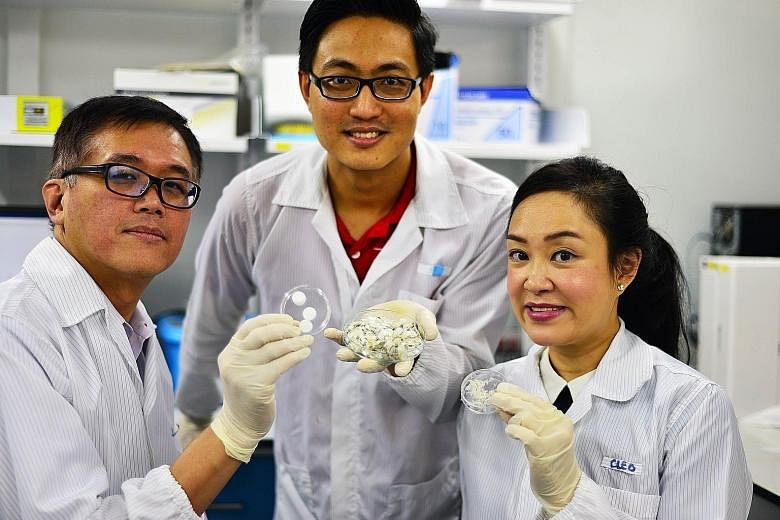Beneath the hard exterior of fish scales is a trove of collagen that can be used to hasten the healing of wounds. And the irony is that all this would normally be discarded.
Collagen is the main protein found in skin and other connective tissue. But that from fish scales is especially good for tissue repair and regeneration, and it is cheaper to produce than other sources of collagen such as cow or pig skin, said a group of Singapore researchers.
It repairs and regenerates by promoting the formation of blood vessels and lymphatic vessels, which transport fluid containing white blood cells from tissues to the bloodstream.
While fish scale-derived collagen in its natural form already promotes wound healing, the researchers took it a step further.
They found a way to modify the collagen chemically to make it water soluble, potentially allowing it to hold drugs. In its natural form, the collagen dissolves only in acidic conditions, which could damage a drug mixed with it.
But with the modified collagen, scientists can, for instance, use it to package growth factors, such as vitamins or hormones, which stimulate the growth of living cells. This paves the way for wound dressings with "superior healing potential", the team said yesterday.
The findings were published recently in science journal Acta Biomaterialia. Associate Professor Andrew Tan of the Nanyang Technological University (NTU) School of Biological Sciences was one of two people who led the research. "Collagen dressings come in all shapes and sizes - gels, pastes, powders and pads. It can potentially treat wounds of all dimensions," he said.
Collagen from fish scales will overcome the cultural and religious restrictions associated with most commercial collagen today, which is mostly derived from pigs, cows and sheep, noted Assistant Professor Cleo Choong of NTU's School of Materials Science and Engineering.
Prof Choong, who led the research with Prof Tan, added: "Clinical application of these materials has been limited due to cultural and religious restrictions associated with these mammalian tissue-derived materials. In addition, more checks and processing have to be in place due to the risk of diseases that can be transmitted from mammals to humans."
Collagen from fish scales is cheaper too. About 200mg of collagen can be obtained from 10g of fish scales, supplied by one or two fish, and will cost just over $8 to make in the lab, excluding labour costs. In comparison, the market price of 200mg of cow-derived collagen is about $80.
There is also little cost in getting the fish scales as they are usually thrown away, unlike other sources like cowhide that have a wide range of other uses, said the team, which collaborated with Associate Professor Veronique Angeli from the National University of Singapore.
The team is in talks with a few local fisheries to explore ways of converting aquaculture waste material into useful materials, and to scale up the collagen extraction process.

